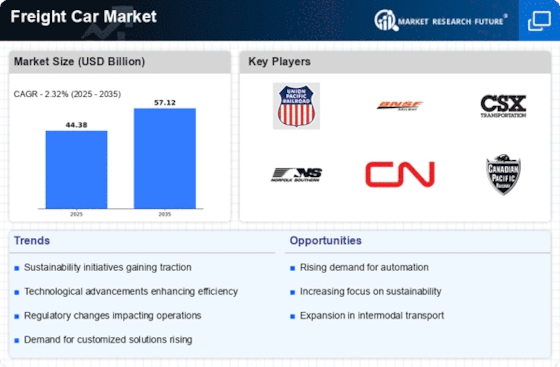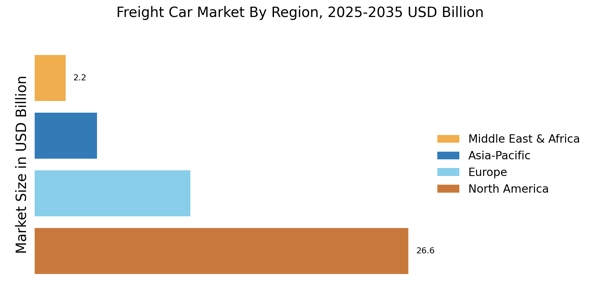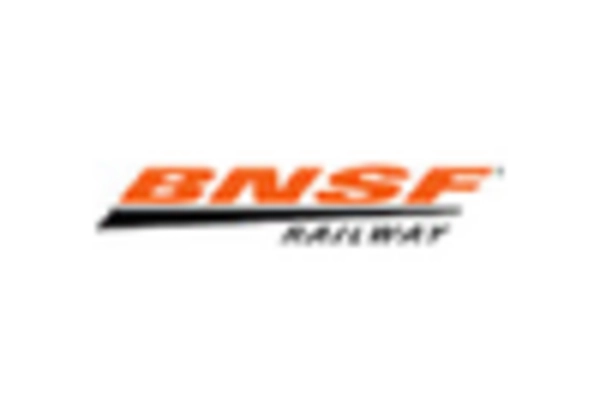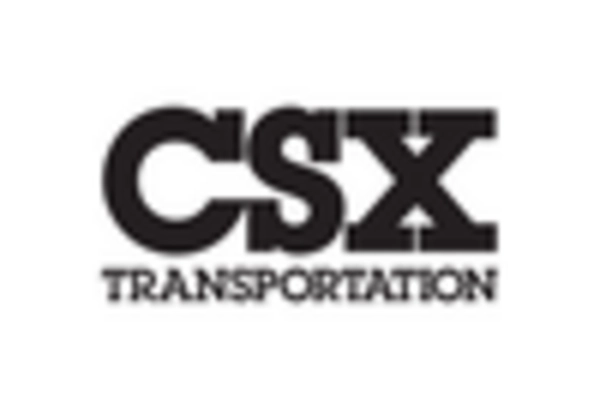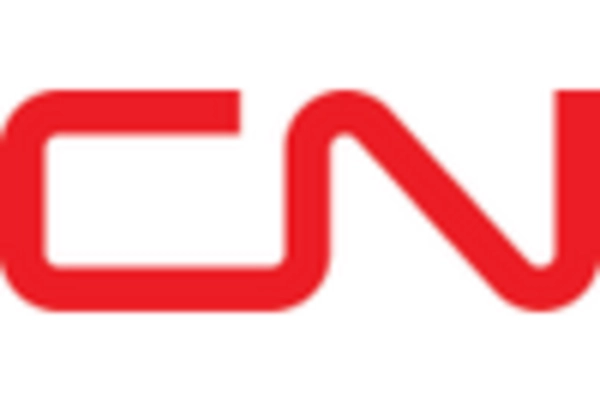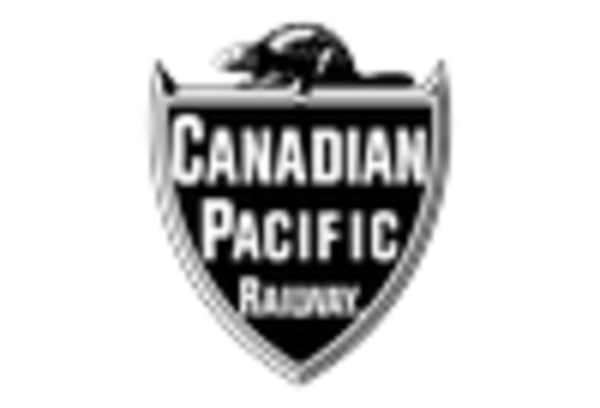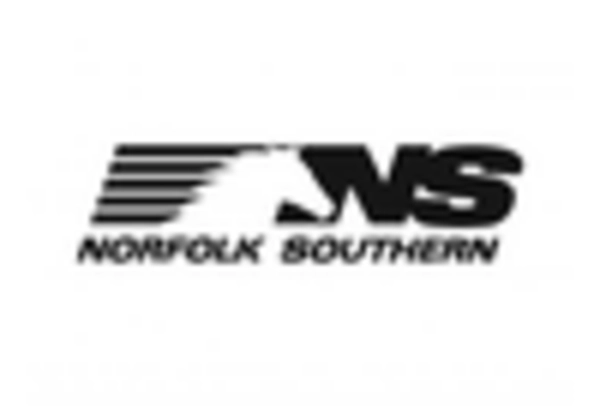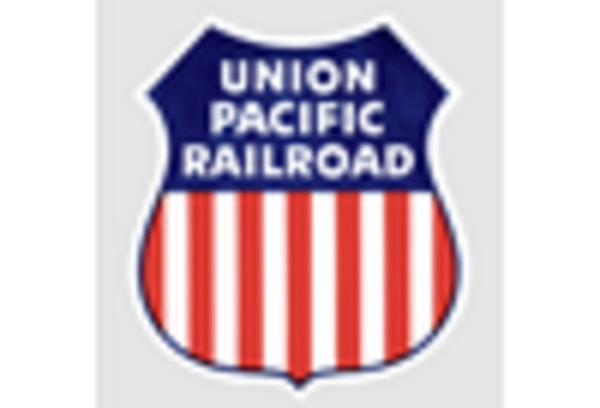Infrastructure Development Initiatives
Infrastructure development initiatives play a crucial role in shaping the Freight Car Market. Governments and private entities are investing heavily in upgrading rail networks and terminals to enhance freight capacity and efficiency. For instance, recent reports indicate that infrastructure spending in the rail sector is projected to reach USD 25 billion by 2026. This investment is expected to facilitate smoother operations and reduce transit times, thereby making rail transport more attractive for shippers. Enhanced infrastructure not only supports the existing freight car fleet but also encourages the introduction of advanced freight cars designed for specific cargo types. As a result, the Freight Car Market stands to benefit from improved operational capabilities and increased market competitiveness.
Shift Towards Intermodal Transportation
The Freight Car Market is witnessing a significant shift towards intermodal transportation solutions. This approach combines different modes of transport, such as rail and truck, to optimize logistics and reduce costs. The intermodal freight transport market is anticipated to grow at a compound annual growth rate of 4.2% over the next few years. This trend is driven by the need for more efficient supply chain management and the desire to minimize carbon footprints. Rail transport, in particular, is favored for its ability to handle large volumes of goods over long distances. As intermodal solutions become more prevalent, the Freight Car Market is likely to adapt by developing specialized freight cars that cater to the needs of intermodal transport.
Technological Innovations in Freight Cars
Technological innovations are transforming the Freight Car Market, leading to enhanced efficiency and safety. The introduction of smart freight cars equipped with IoT devices allows for real-time tracking and monitoring of cargo conditions. This technology not only improves operational efficiency but also enhances customer satisfaction by providing transparency in the shipping process. Furthermore, advancements in materials and design are contributing to the development of lighter and more durable freight cars, which can carry heavier loads while consuming less energy. As these technologies continue to evolve, the Freight Car Market is expected to see increased adoption of smart freight solutions, potentially leading to a more streamlined and responsive logistics ecosystem.
Increasing Demand for Freight Transportation
The Freight Car Market is experiencing a notable surge in demand for freight transportation services. This trend is primarily driven by the expansion of e-commerce and the need for efficient logistics solutions. As businesses increasingly rely on freight cars to transport goods, the market is projected to grow significantly. According to recent data, freight car shipments are expected to increase by approximately 3.5% annually over the next five years. This growth is indicative of a broader shift towards rail transport, which is often more cost-effective and environmentally friendly compared to road transport. Consequently, the Freight Car Market is likely to see a corresponding rise in investments in new freight car technologies and infrastructure to meet this growing demand.
Environmental Regulations and Sustainability Goals
The Freight Car Market is increasingly influenced by environmental regulations and sustainability goals set by governments and organizations. Stricter emissions standards and a push for greener transportation solutions are prompting freight car manufacturers to innovate. The market is witnessing a rise in the production of eco-friendly freight cars, including those powered by alternative fuels and electric systems. Recent data suggests that the market for green freight solutions could grow by 20% over the next decade. This shift not only aligns with global sustainability initiatives but also offers companies a competitive edge in an increasingly eco-conscious market. As a result, the Freight Car Market is likely to evolve, focusing on sustainable practices and technologies that meet regulatory requirements.


